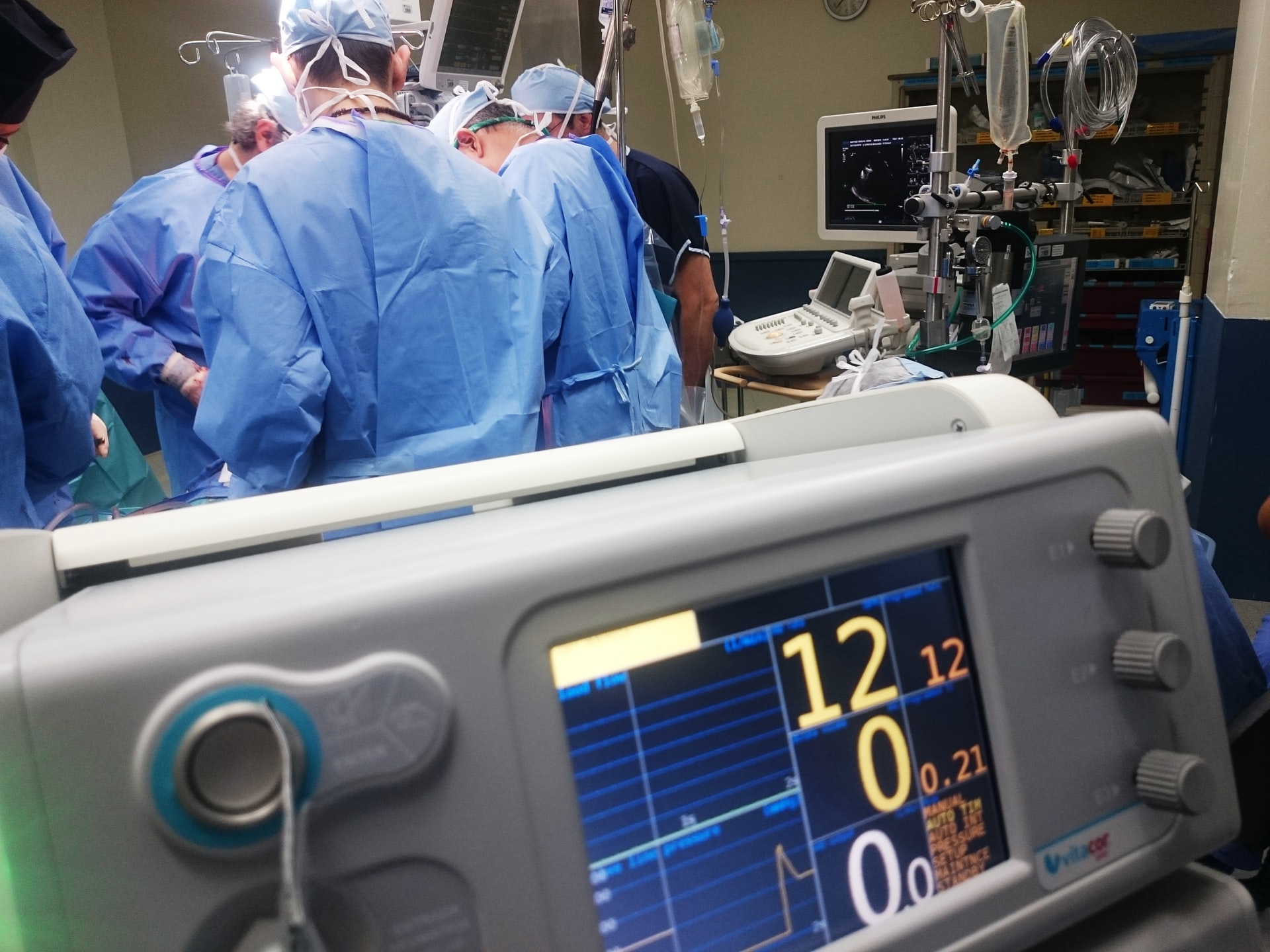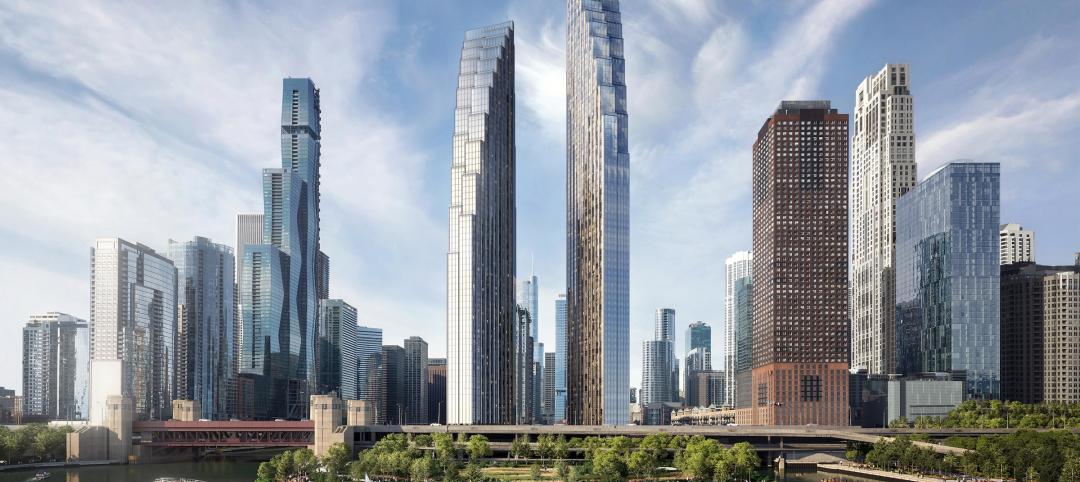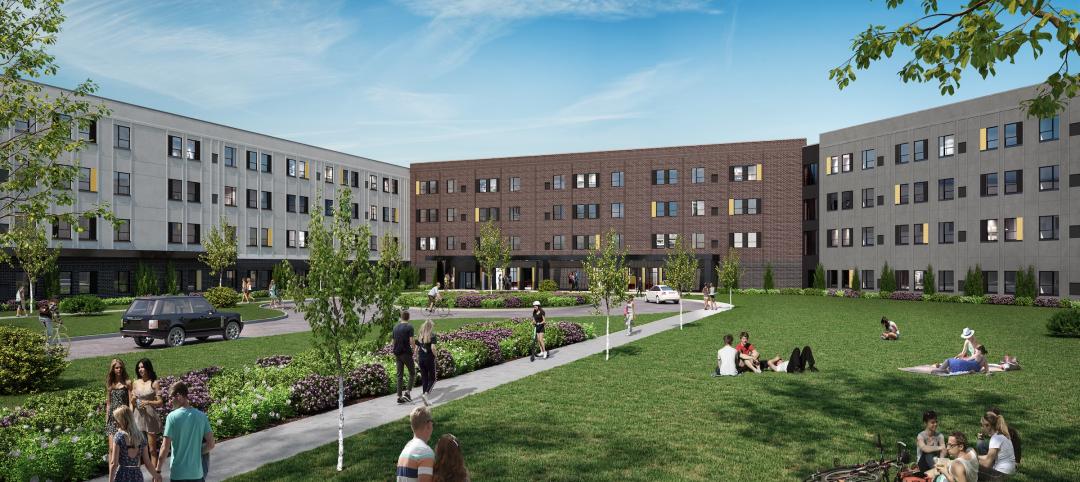The American College of Healthcare Architects (ACHA) has released the key findings of a survey of its members revealing their insights on the future of healthcare architecture and the role of design in the context of the COVID-19 healthcare crisis.
“The extensive experience of ACHA’s healthcare architects gives us unique insights into how this pandemic will shape the future of healthcare,” said Vince Avallone, AIA, ACHA, CASp, LEED AP, the ACHA's President. “These findings will influence the design of hospitals and healthcare environments for years to come.”
ACHA CORONAVIRUS SURVEY REVEALS HEALTHCARE DESIGNERS' ROLE IN ADDRESSING THE PANDEMIC
The ACHA survey revealed:
• Over 63% of respondents helped clients evaluate alternative care sites.
• Over 60% of ACHA experts were called on to help healthcare systems increase capacity – 28% created over 100 beds.
• Over 70% of respondents believe design for mass casualty patient surges will be an important element for hospitals in the future.
• Over 80% of respondents thought the telehealth boom would have major impact on facility design.
ACHA surveyed 129 certified professional healthcare designers to reveal lessons learned from COVID-19 and the role of architects in addressing the crisis. Participants represent areas across North America, including many severely affected states such as New York, New Jersey, Illinois, Massachusetts, California, and Pennsylvania.
WHAT WILL HAPPEN WITH HEALTHCARE FACILITIES AFTER THE COVID-19 PANDEMIC?
The survey also identified the healthcare designers' concerns about the future:
• How can hospitals be designed so normal operations (such as elective procedures) can continue through a pandemic so as not to disrupt regular patient treatment and create financial shortfalls for providing institutions?
• With the likely implementation of restrictions on patient/visitor traffic flow to control cross-contamination, how will this transform facility intake and entry design?
• How will increased restrictions placed on patient/visitor traffic flow to control cross-contamination transform facility intake and entry design?
• How can architects emphasize building flexible, adaptable facilities that can be easily modified to allow a quick response to changing medical priorities?
• How can healthcare and non-healthcare facilities be designed to handle patient overflow in a more expedient fashion?
“ACHA certificate holders represent a majority of the nation’s top healthcare design firms,” said Avallone, a Vice President/Senior Medical Planner at SmithGroup. “These results show our continuing commitment to help develop solutions for future healthcare design challenges. ”
For the full results of the survey, click here.
Related Stories
University Buildings | Jun 28, 2024
The American University in Cairo launches a 270,000-sf expansion of its campus in New Cairo, Egypt
In New Cairo, Egypt, The American University in Cairo (AUC) has broken ground on a roughly 270,000-sf expansion of its campus. The project encompasses two new buildings intended to enhance the physical campus and support AUC’s mission to provide top-tier education and research.
MFPRO+ New Projects | Jun 27, 2024
Chicago’s long-vacant Spire site will be home to a two-tower residential development
In downtown Chicago, the site of the planned Chicago Spire, at the confluence of Lake Michigan and the Chicago River, has sat vacant since construction ceased in the wake of the Great Recession. In the next few years, the site will be home to a new two-tower residential development, 400 Lake Shore.
Codes and Standards | Jun 27, 2024
Berkeley, Calif., voters will decide whether to tax large buildings with gas hookups
After a court struck down a first-in-the-nation ban on gas hookups in new buildings last year, voters in Berkeley, Calif., will have their say in November on a measure to tax large buildings that use natural gas.
Mass Timber | Jun 26, 2024
Oregon State University builds a first-of-its-kind mass timber research lab
In Corvallis, Oreg., the Jen-Hsun Huang and Lori Mills Huang Collaborative Innovation Complex at Oregon State University aims to achieve a distinction among the world’s experimental research labs: It will be the first all-mass-timber lab meeting rigorous vibration criteria (2000 micro-inches per second, or MIPS).
Sustainability | Jun 26, 2024
5 ways ESG can influence design and create opportunities
Gensler sustainability leaders Stacey Olson, Anthony Brower, and Audrey Handelman share five ways they're rethinking designing for ESG, using a science-based approach that can impact the ESG value chain.
Student Housing | Jun 25, 2024
P3 student housing project with 176 units slated for Purdue University Fort Wayne
A public/private partnership will fund a four-story, 213,000 sf apartment complex on Purdue University Fort Wayne’s (PFW’s) North Campus in Fort Wayne, Indiana. The P3 entity was formed exclusively for this property.
Sustainability | Jun 24, 2024
CBRE to use Climate X platform to help clients calculate climate-related risks
CBRE will use risk analysis platform Climate X to provide climate risk data to commercial renters and property owners. The agreement will help clients calculate climate-related risks and return on investments for retrofits or acquisitions that can boost resiliency.
MFPRO+ News | Jun 24, 2024
‘Yes in God’s Backyard’ movement could create more affordable housing
The so-called “Yes in God’s Backyard” (YIGBY) movement, where houses of worship convert their properties to housing, could help alleviate the serious housing crisis affecting many communities around the country.
Student Housing | Jun 20, 2024
How student housing developments are evolving to meet new expectations
The days of uninspired dorm rooms with little more than a bed and a communal bathroom down the hall are long gone. Students increasingly seek inclusive design, communities to enhance learning and living, and a focus on wellness that encompasses everything from meditation spaces to mental health resources.
Museums | Jun 20, 2024
Connecticut’s Bruce Museum more than doubles its size with a 42,000-sf, three-floor addition
In Greenwich, Conn., the Bruce Museum, a multidisciplinary institution highlighting art, science, and history, has undergone a campus revitalization and expansion that more than doubles the museum’s size. Designed by EskewDumezRipple and built by Turner Construction, the project includes a 42,000-sf, three-floor addition as well as a comprehensive renovation of the 32,500-sf museum, which was originally built as a private home in the mid-19th century and expanded in the early 1990s.

















